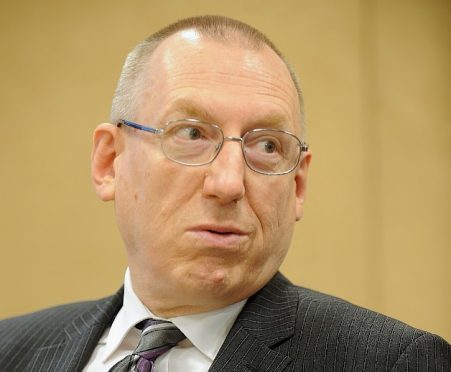Finance chiefs have revealed Highland Council is facing a funding black hole of between £130million and £187million.
Councillors will be told this week that the authority will have to find £40million each year for the next five years to plug the gap.
And finance director Derek Yule is calling for an urgent review of the revenue and capital budgets – warning warning unless “alternative ways of generating income” can be found, cuts will come.
There is no indication at this stage which services might face cutbacks.
But the council is already under pressure to meet demand, with the Tories preparing to put forward an emergency motion for a new secondary school in Inverness to cope with the booming population.
It is understood a radical proposals to pool certain resources between councils in Moray, Aberdeen and Aberdeenshire has not moved forward a great deal since mooted last year.
Highland had already been working for many months on a comprehensive “redesign” of its entire operations in order to streamline services while becoming more of a business, after a decade of shrinking budgets.
Mr Yule will tell councillors a key challenge over the next five years “will be a lack of financial resources.”
Opposition group leader Maxine Smith of the SNP described the situation as “gloom and doom, yet again, from this administration.”
She said the report addressed the gap “but suggests very little of how to fill it except even more austerity.”
Ms Smith questioned whether council taxpayers had any more of an appetite for volunteering to cover for gaps in council services, which began with former premier David Cameron’s “big society” idea.
Raising specific examples of where the council might have done better, she asked: “Why do we have to spend £52millon to build one academy? If we re-looked at specifications we could build two or three for that sum.
“Why did toilet blocks the council built over the past 10 years cost around £400,000 each?”
She added: “Gone are the days when councils can simply wait for handouts. They need to create their own luck.”
Matthew Reiss, a member of the administration’s budget team, insisted that public input to the process was increasingly important.
“We’ll continue to ask the public for ideas. In practical terms, one of the best examples of that is our citizens’ panel. And, last year, the novel idea of a budget simulator that put members of the public in our shoes, attracted a host of good ideas, many of which are being actively looked at.”
According to the council, feedback from the panel “confirms a public appetite for more involvement.”
Results from its surveys in the past few years suggest that 69% of people want to be involved in decision making in their area.
An agenda item on the council redesign states: “If we do not generate more income we will not be able to provide the services that people need.”
A particular pressure point is the need for expanding school provision to accommodate a house-building explosion in and around Inverness.
An emergency motion on that issue, from the Tory group, presses for a new secondary school to be built within the Inverness South ward.
“This is the largest populated ward in Highland, yet has no secondary school of its own,” the motion states.
“Its rapid growth has overwhelmed the three secondary schools which it feeds into, with one of these projected to be at 154% capacity by 2030.”
Tory group leader Callum Smith said: “It’s a major challenge but there are ways the council can become more of a business by generating more revenue. We simply need to be sharper on that front.”
